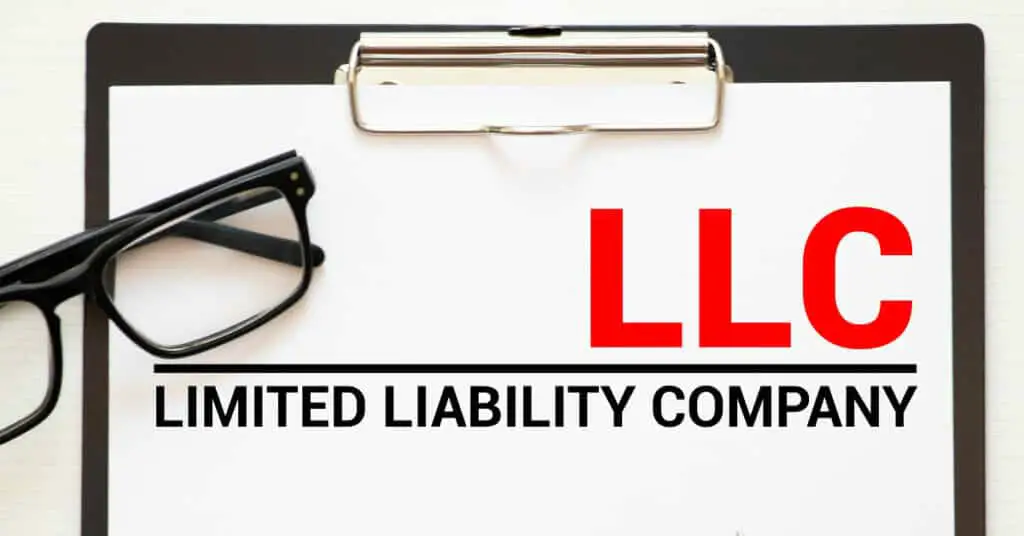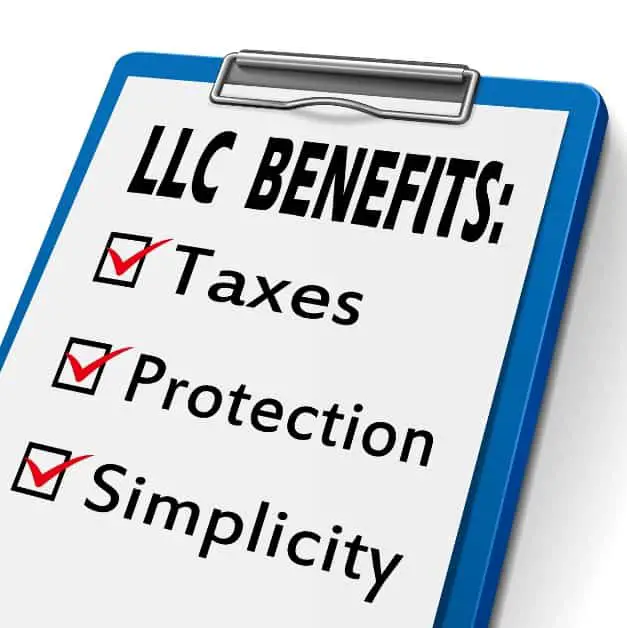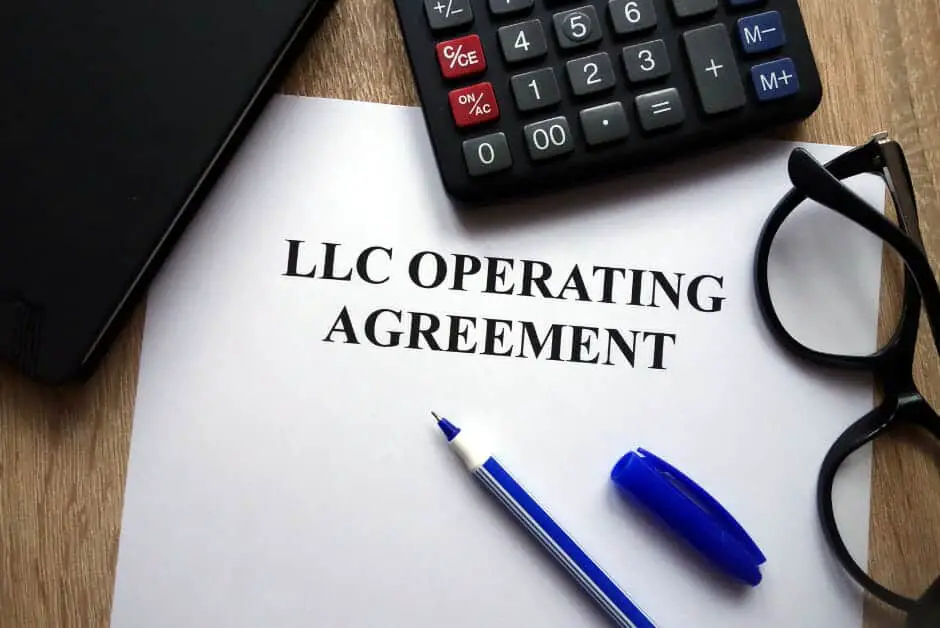Do You Need an LLC to Start an Online Business: The Pros and Cons
Starting an online business can be a great way to make money from home. But, do you need an LLC to start an online business? This is a question that many people ask. In this blog post, we will discuss the pros and cons of forming an LLC so that you can make an informed decision about whether to form one for your business. We will also give you some tips on how to decide if it is right for you.
Disclaimer
Please note that this blog article is informational and educational. It is not intended to be legal advice about forming LLC. Readers would need to do their research and make their decision. The content in this blog article is based on my opinion and experience. You should consult with a qualified professional before deciding about forming an LLC.
What is an LLC?

LLC stands for Limited Liability Company. It is a business structure that businesses can use in the United States. It provides limited liability protection to business owners.
This means that the owners of an LLC are not personally liable for the debts and liabilities of the company. This can be a great way to protect your personal assets if your business fails.
An LLC is formed by filing articles of organization with the state in which the business will be located. The owners of an LLC are called members.
Why form an LLC?
There are several reasons why you may want to form an LLC for your business. We can look at it from the perspectives of the risk of starting a business without an LLC and the Pros of forming one.
Risks of Starting a Business Without an LLC
When starting a business, there are many risks to be aware of. One of the biggest risks is that you could be personally liable for the debts and liabilities of your business and your personal assets may be used to pay for the debts and liabilities of your business. This could happen if you are sued by a creditor of your business should your business fails.
Do you need an LLC to start an online business: The Pros

An LLC can offer some great benefits, such as limited liability protection and tax advantages. Here are some of the most common benefits:
Personal liability protection
As we mentioned above, one of the major benefits of forming an LLC is that it provides limited liability protection to its owners. This can be a great way to protect your personal assets from being used to pay for debts or liabilities if your business fails.
It is important to note that forming an LLC doesn’t protect you from lawsuits. Instead, it provides protection against liability for the actions of your business.
This includes protecting you from being held accountable for the debts of your business and offers personal asset protection against your personal assets being seized by creditors. If someone sues your business, they can only go against the business itself, not you personally.
What an LLC allows you to do
What it allows you to do is form a business where you and other owners are protected from personal financial losses. If the company goes bankrupt, each owner’s personal finances are not at risk. This is what is meant by limited liability protection.
An LLC helps you keep track of who owns what. It also outlines the rules for how the business will be run. This can help to prevent disagreements between owners down the road.

Privacy protection
LLCs are not required to disclose their ownership information to the public, thus they offer their owners a higher degree of privacy than other business structures such as sole proprietorship, Limited Liability Partnership, Limited Partnership and Corporations.
For these reasons, LLCs are often considered to be one of the best ways to protect both personal and business assets.
Tax advantages
Another benefit of an LLC is that it is a flexible business structure for taxation. How an LLC is taxed depends on the type of business it is and the tax status of its owners.
There are three different ways that an LLC can be taxed: as a sole proprietorship, a partnership, or a corporation. The tax status of an owner is determined by their ownership percentage in the company and by whether they are active or passive investors.
There are a few things to keep in mind for the taxation of an LLC: 1. An LLC can choose how it wants to be taxed. This means that you can switch between tax structures as long as you do so on time. 2. An LLC can be taxed as a corporation, even if it is owned by one person. 3. An LLC must file a separate tax return for each state in which it does business.
LLCs Qualify for the 20% Pass-Through Deduction
One of the biggest benefits of forming an LLC is that they qualify for the 20% pass-through deduction, so the profits and losses of the company are passed through to the members and taxed on their individual tax returns. This deduction was created as part of the Tax Cuts and Jobs Act of 2017 and can be a great way to reduce your tax burden.
There are some criteria and rules that may apply, so it is important to consult with a tax professional to see if your LLC qualifies for the deduction.
LLCs Are Easy to Start and Run

Forming an LLC is a relatively straightforward process. In most states, you can file your LLC paperwork online. The filing fee is also typically quite low. Once you have filed your paperwork, the LLC will be created and you will be able to start doing business.
The LLC will need to have an operating agreement, which is a document that outlines the rules and regulations for the company. This document will be important if there are disagreements between owners about how the business should be run.
Keep Business Accounting Separate
When you’re starting a new business, it’s important to keep your accounting and financial records separate from your personal finances. This will make it easier to track the progress of your business and to make tax filings.
One way to do this is to set up a separate bank account for your business. This will help to keep your finances organized and will make it easier to track your business expenses. Another way to keep your finances organized is to use a bookkeeping software like Wave or QuickBooks. This software can help you track your income and expenses, as well as your assets and liabilities.
By keeping your business finances separate from your personal finances, you can ensure that your business is on solid financial footing.
Flexible Business Structure
LLCs are very flexible and can be adapted to fit the needs of your business. This flexibility can be a significant advantage for businesses that are just starting out and are not sure what type of business structure they should use.
For example, if you want to add extra members to your LLC, you can do so by amending your operating agreement. You can also choose to change how your LLC is taxed.
It’s important to consult with a professional. An attorney or accountant can help you understand the pros and cons of forming an LLC and can advise you on which business structure is best for your needs.
Credibility and Consumer Trust
Customers are more likely to do business with a company that is registered as an LLC rather than individuals because it shows that there is a business legal entity. The company is serious about its business and is committed to following the law.
An LLC can also make it easier to get financing for your business because it can give the business a more professional appearance. This can be helpful if you are trying to attract investors or customers.
Finally, forming an LLC can also make it easier to open a business bank account and get business loans. Banks and other lenders may be more likely to lend money to an LLC than to a sole proprietor. This can be essential for an online business that needs access to capital to grow.
Ease of formation
One of the biggest benefits of forming an LLC is that they are very easy to form and do not need a lot of paperwork or legal fees. This can be a great advantage for small businesses that may not have the time or money to invest in a more complex business structure, like a corporation.
In most states, all you need to do is file Articles of Organization with the Secretary of State’s office. There are no special taxes or regulations that apply to LLCs. This makes them a very popular choice for businesses that are just starting out.
Do you need an LLC to start an online business: The Cons
While there are many advantages to forming an LLC, there are also a few disadvantages. One of the biggest disadvantages is that LLCs are subject to extra state taxes and fees.
For example, in California, LLCs must pay an annual tax of $800. In addition, if your LLC will make more than $250,000, you will have to pay a fee from $900 to $11,790 (the actual amount depends on the total income). This can be a disadvantage for businesses that are in states with high taxes.
LLCs may have to pay franchise taxes in certain states. These taxes can add up quickly and can be a financial burden for businesses that are just starting out.
When should you form an LLC?
When I started my online business, I started with sole proprietorship, as it's the easiest and cheapest to set up. But as I got to know more about the importance of having liabilities protection for my business, I subsequently converted my business into a private limited company (which is the equivalent of an LLC in Singapore).
It has been one of the best decisions I have made for my business. I could sleep soundly at night knowing that my personal assets are protected if my business gets sued.
So if you are starting a new online business, you may want to form an LLC as soon as you can afford it. This will offer you more liability protection and can help you attract investors or customers.
If you are starting a new business, an LLC is a good choice because it is easy to form and does not need a lot of paperwork or legal fees. Additionally, an LLC offers more liability protection than a sole proprietorship.
3 States That Are LLC-Friendly
There are several states that are LLC-friendly and offer favorable tax treatments and regulations for LLCs. Here are three of the most popular states for LLCs:
1. Delaware
The state of Delaware has been attracting businesses and investors and a popular choice among large corporations looking to incorporate. Many startups are choosing Delaware over other states because of its flexible business policies and LLC laws.
It is attractive to many entrepreneurial types because of its low franchise and initial filing fees, plus a favorable business-friendly court system (Court of chancery).
You can find out more about forming LLC in Delaware here: https://corp.delaware.gov/howtoform/
2. Wyoming
The small state of Wyoming is the first state to offer limited liability companies (LLCs) and has been attracting businesses and entrepreneurs looking for low taxes and friendly regulations. It has no corporate income tax, no personal income tax, and a very simple LLC registration process.
Wyoming has laws that are favorable to LLCs, and the state does not need any special taxes or regulations for LLCs.
You can find out more about forming LLC in Wyoming here: https://sos.wyo.gov/business/startabusiness.aspx
3. Nevada
Nevada is a popular state for businesses that want to minimize their tax burden. Nevada does not have a personal income tax or a corporate income tax (or franchise tax), favorable laws for LLCs, a simple registration process and does not need any special taxes or regulations for LLCs.
You can find out more about forming LLC in Nevada here: https://www.nvsos.gov/sos/businesses/start-a-business/limited-liability-company
More tips to help you make an informed decision
If you are still undecided about whether an LLC is right for you, here are some tips to help you decide:
1. Do your research – Before deciding, it is important to do your research and learn as much as you can about the different types of business entity available to you. This will help you make an informed decision about which one is best for your business.

2. Talk to an attorney – If you still have questions about whether an LLC is right for you, it may be helpful to talk to an attorney who specializes in small business law. They will give you specific advice tailored to your unique situation.
3. Consider your needs – The best way to decide whether an LLC is right for you is to consider your specific needs and goals for your business.
Do you need the limited liability protection that an LLC offers? Do you want the flexibility and ease of formation that an LLC provides? Once you have answered these questions, you will be in a better position to decide about whether an LLC is right for you.
Conclusion
An LLC can be a great way to reduce your tax burden, but it’s important to understand the pros and cons of this business structure before deciding. It’s important to consult with a professional who can advise you on which business structure is best for your needs.
No two businesses are alike, so there is no one-size-fits-all answer to whether you should form an LLC. However, we hope this article has given you some food for thought for the question “Do you need an LLC to start an online business” and helped you make an informed decision about whether you should form an LLC for your business.
FAQ
What is the difference between LLC Vs. Sole Proprietor for Online Retail Business?
An LLC is a business structure that offers more liability protection than a sole proprietorship. This means that if your business is sued, the personal assets of the LLC members are protected. Sole proprietorship is not a separate legal entity, so the personal assets of the owner are at risk if the business is sued.
Another difference between an LLC and a sole proprietorship is that an LLC can have multiple owners, whereas a sole proprietorship can only have one owner. Finally, an LLC can be taxed in a variety of ways, whereas a sole proprietorship is always taxed as if it were income earned by the owner. This can be helpful for businesses that want to minimize their tax burden.
Is a single-member LLC the same as a sole proprietorship?
A single-member LLC is a limited liability company with only one owner. A sole proprietorship is a business owned and operated by one person. Both types of businesses have some similarities, but there are also some key differences.
For example, a sole proprietor has unlimited liability, meaning they are personally responsible for all debts and losses incurred by their business. A single-member LLC offers its owner limited liability protection, meaning they are not personally responsible for business debts and losses.
How much does an LLC cost for an eCommerce store?
An LLC can cost anywhere from $100 to $1000 to form, depending on the state you form it in. There may be annual fees or taxes associated with LLCs. It is important to consult with an attorney or accountant to get specific advice about the costs associated with forming and running an LLC.
I hope this article has helped you to understand whether you need an LLC to start an online business. If you have questions, please leave a comment below. Thanks for reading!
Do you have any other questions about LLCs? Let us know in the comments.







